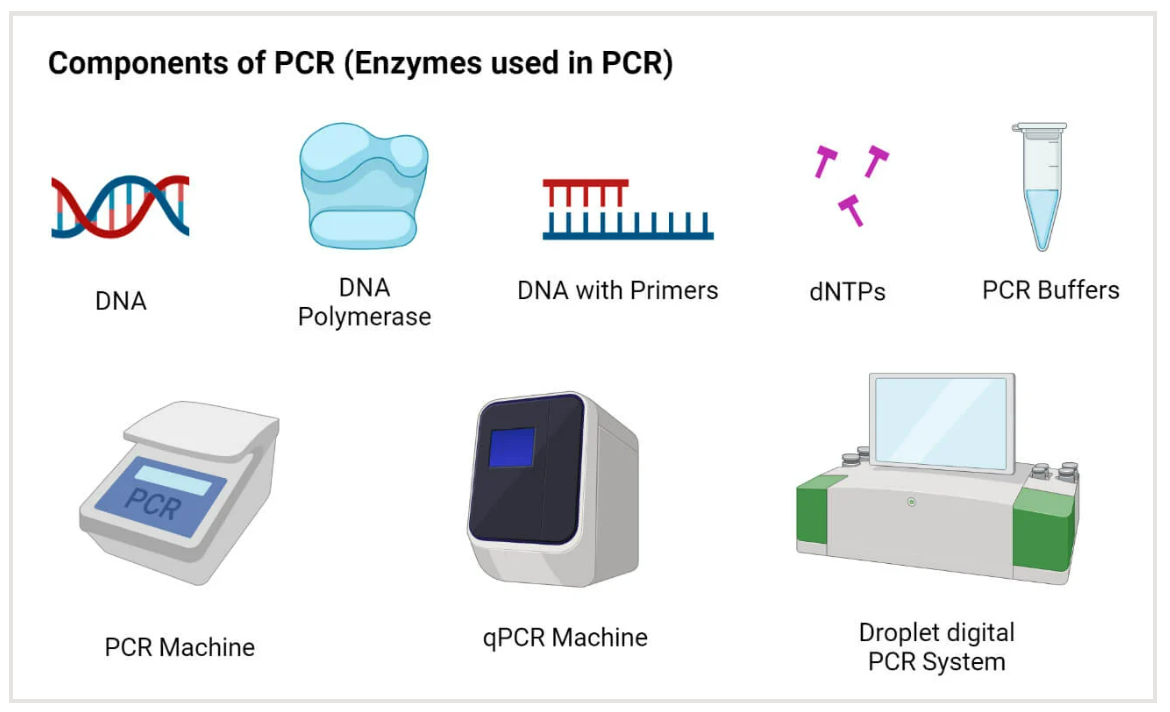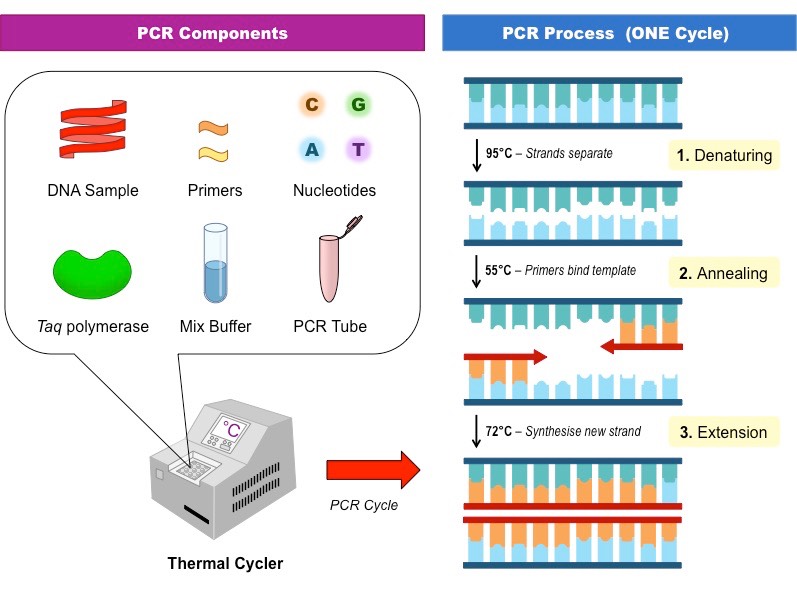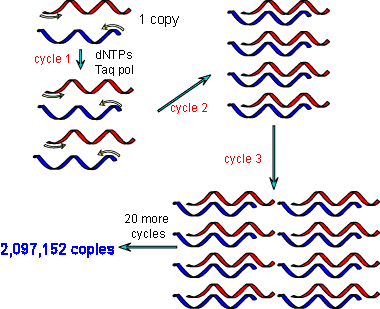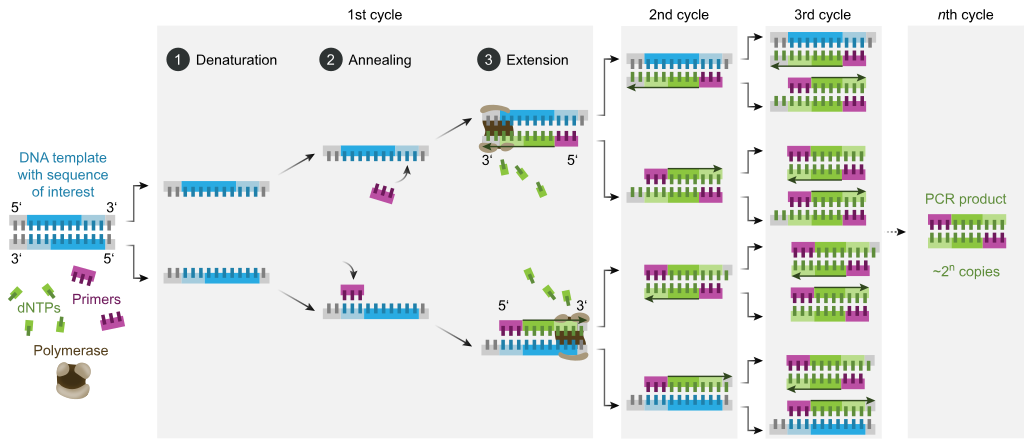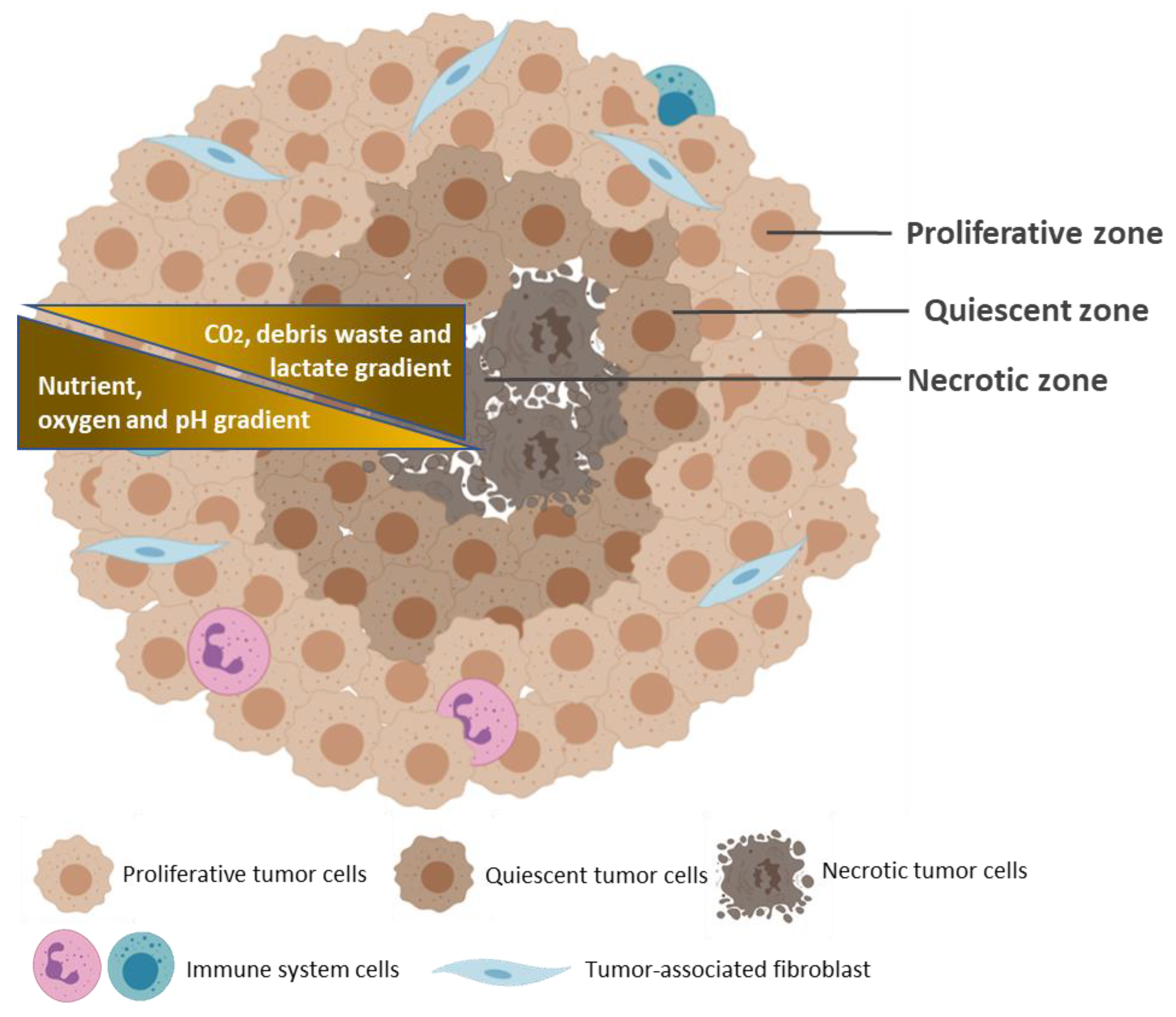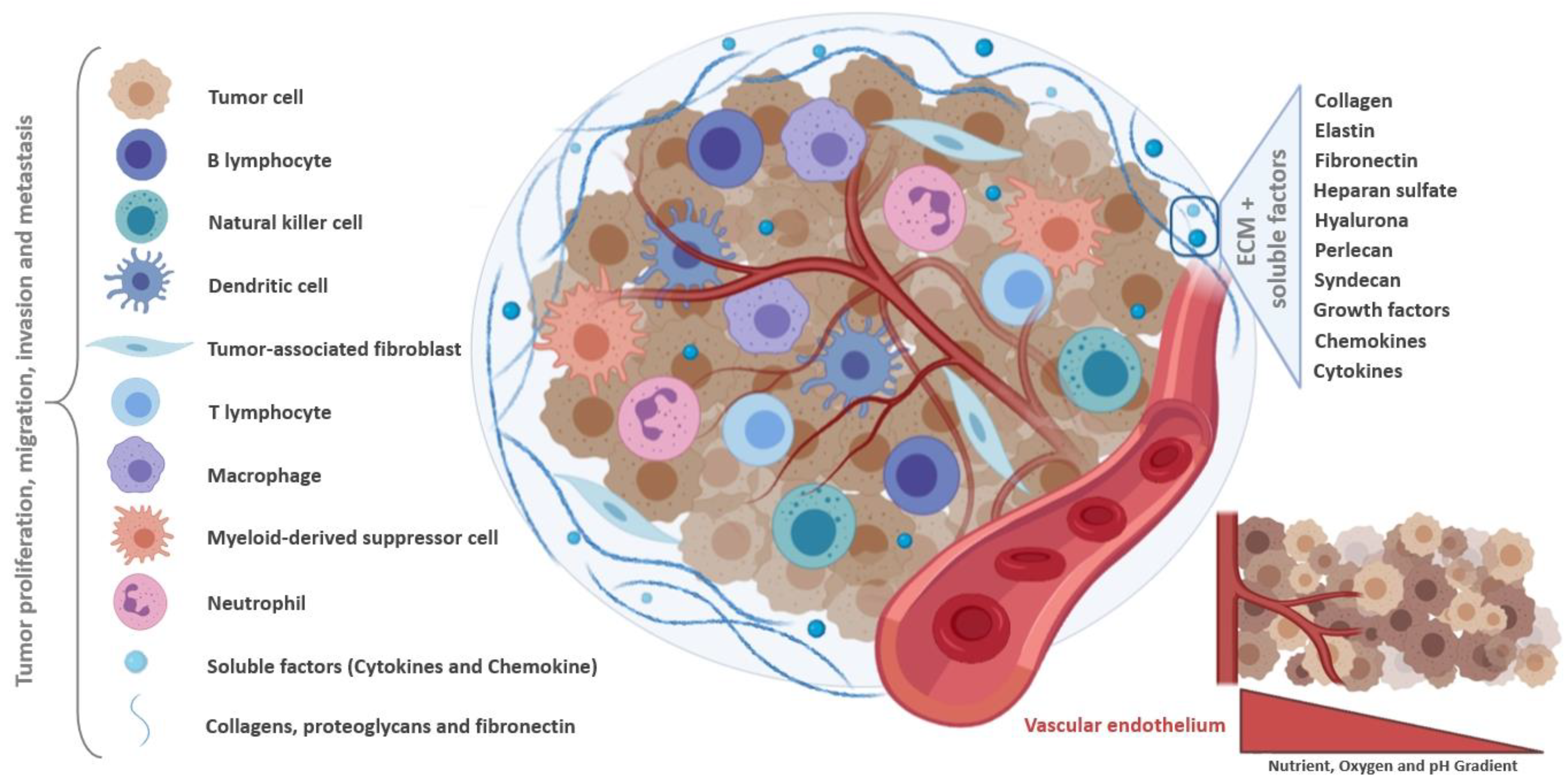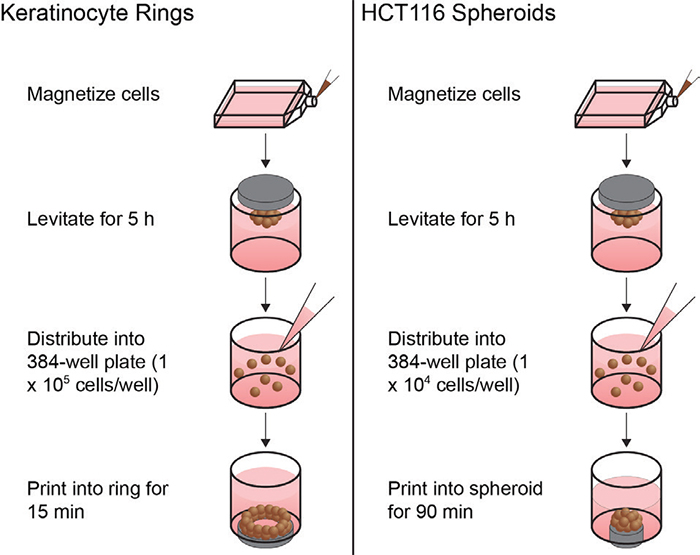Different types of PCR techniques in molecular biology
Polymerase chain reaction (PCR) technology is a fundamental tool in molecular biology to rapidly amplify DNA sequences. PCR technique is based on the principle of enzymatic replication of nucleic acids and is one of the main methods for DNA analysis.
Advantages and disadvantages of PCR technology
[vc_row][vc_column][vc_column_text]The polymerase chain reaction (PCR) is a quick, simple, and the most accurate molecular test to create unlimited copies of DNA from just one original strand. PCR technology has revolutionized genetic testing and has become an essential tool for anyone
A brief introduction to Polymerase Chain Reaction (PCR)
Polymerase Chain Reaction (PCR) was invented by Kary B. Mullis in 1985 for which he was also awarded the Nobel Prize for Chemistry in 1993. In 1993, the first FDA-approved PCR kit came to market (1). PCR is a fast,
Top three applications of Polymerase Chain Reaction (PCR)
Polymerase Chain Reaction (PCR) is a laboratory technique that rapidly amplifies tiny amounts of biological samples to millions or even billions of copies of a targeted nucleotide sequence. The entire process of PCR is automated by a machine called a
The Shared Characteristics Of Spheroids And Tumors
Since its introduction, 3D cell culture has revolutionized cancer research by providing an efficient and modifiable research platform, that recapitulates in vivo like cell structure, function, gene expression and tissue microenvironment, all of which are important parameters for the drug
The Importance Of The Tumor Microenvironment In Cancer Research
Tumors derive from an abnormal growth of cells that occurs when cells continue to divide more than they should or when they do not enter programmed cell death. Tumors can be either benign or malignant. Malignant tumors are of most
Magnetic 3D bioprinting: Principle, Applications, and Advantages
Three-dimensional (3D) cell culture models have gained more popularity over the last decade due to the advantages of better mimicking the in vivo microenvironment and tissue microarchitecture. However, applications of 3D cell culture models in high-throughput biomedical research are limited
Magnetic 3D bioprinting: Methods and Techniques
Magnetic 3D bioprinting uses magnetic fields to manipulate the positioning of magnetic nanoparticles or magnetized cells during the 3D printing process. The process of magnetic 3D bioprinting involves the following steps (1,2): 1. Preparing the magnetic particles or cells: Magnetic particles or
Organoid tumor models: benefits and challenges
Cancer is one of the most threatening diseases and leading cause of death worldwide (1). Intra- and intertumoral heterogeneity is often responsible for metastasis formation, treatment failure, and therapy resistance. The increase in the cost of research and development of
Types of three-dimensional cultures for drug screening
The rather low success rates in new drug development and the increased costs suggest that alternative and robust strategies are required to improve early drug discovery. Two-dimensional (2D) monolayer cultures do not provide a true in vitro representation of disease and


